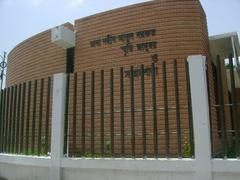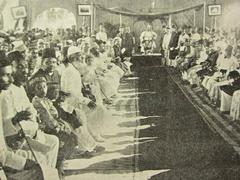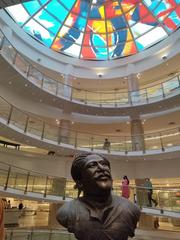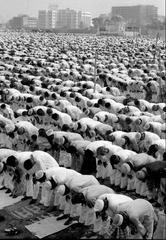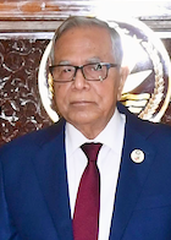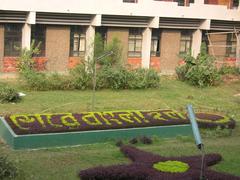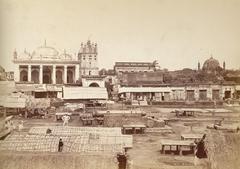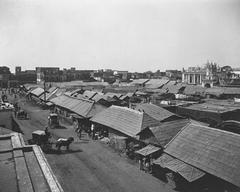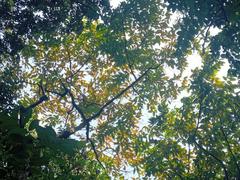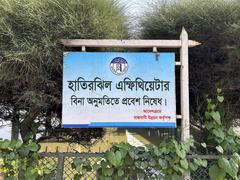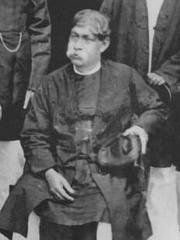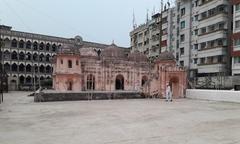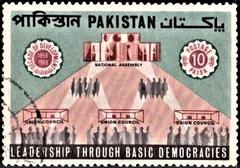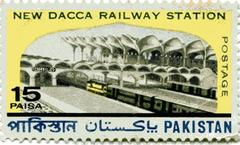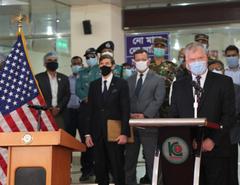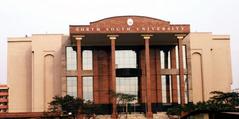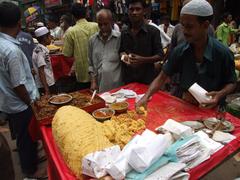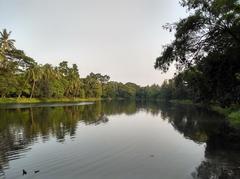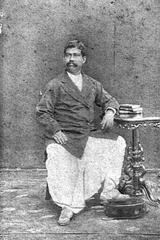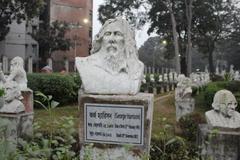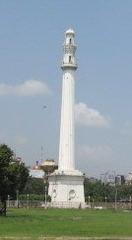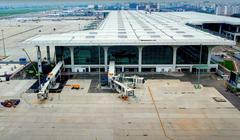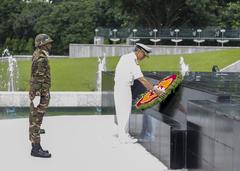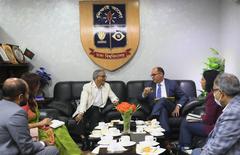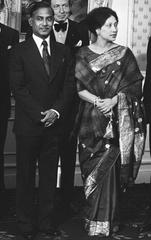National Archives of Bangladesh Dhaka: Visiting Hours, Tickets, and Historical Significance Guide
Date: 04/07/2025
Introduction
The National Archives of Bangladesh (NAB), located in Dhaka, stands as the nation’s foremost institution dedicated to safeguarding Bangladesh’s documentary heritage and cultural memory. Established shortly after independence, the Archives consolidate materials from the colonial era, the Partition of Bengal, the Language Movement, and the Liberation War of 1971. By preserving these invaluable records, the Archives serve not only as a vital research center but also as a living testament to the country’s historical evolution.
Whether you are a historian, student, researcher, or tourist, a visit to the National Archives offers a rare opportunity to engage with original documents, rare manuscripts, newspapers, photographs, and maps that illuminate Bangladesh’s rich and multifaceted past. This guide provides detailed visitor information, including opening hours, ticketing, research access, travel tips, accessibility features, and highlights of the Archives’ historical and cultural significance.
Ongoing preservation and digitization initiatives, including collaborations with international bodies such as UNESCO’s Memory of the World Programme, reflect the Archives’ commitment to increasing public access and strengthening archival science in Bangladesh. For the most current updates on visiting hours, services, and special exhibitions, please consult the official National Archives of Bangladesh website and other recommended resources (National Archives of Bangladesh Visiting Hours, Tickets, and Historical Insights; Discover the National Archives of Bangladesh).
Table of Contents
- Introduction
- History and Cultural Importance
- Legislative Framework and Governance
- Visiting the National Archives
- Collections and Preservation Initiatives
- Digitalization and Modernization
- Frequently Asked Questions (FAQ)
- Practical Visitor Information
- Conclusion and Recommendations
- References
History and Cultural Importance
The National Archives of Bangladesh was established in the early 1970s, reflecting the new nation’s resolve to safeguard its historical records and promote research. Originally housed in a rented building, the Archives moved to its current location in Agargaon, Dhaka, in 1986, adjacent to the National Library. The institution’s creation under the Ministry of Cultural Affairs marked a significant step in consolidating scattered records from colonial and pre-independence periods (history.state.gov).
The Archives hold a pivotal place in Bangladesh’s journey of nation-building and cultural preservation. Its collections document critical moments such as the British Raj, the East Pakistan era, the Language Movement, and the 1971 Liberation War. By providing access to these primary sources, the Archives nurture research, public education, and a sense of national identity.
Legislative Framework and Governance
Bangladesh enacted archival management legislation in 1983, authorizing the Department of Archives and Libraries to oversee the preservation and accessibility of official records. While the law primarily addresses pre-independence documents, some post-1971 records remain with their originating ministries, notably the Ministry of Foreign Affairs (history.state.gov). The department is responsible for policy implementation, cataloguing, conservation, and facilitating public and scholarly access.
Visiting the National Archives
Visiting Hours
- Days: Sunday to Thursday
- Time: 9:00 AM – 5:00 PM (with a lunch break, typically 1:00 PM – 2:00 PM)
- Closed: Fridays, Saturdays, and all national/public holidays
It is recommended to confirm current opening hours ahead of your visit, especially during special events or national holidays.
Ticket Prices and Research Access
- General Admission: Free for casual visitors.
- Research Membership (Annual):
- Bangladeshi nationals: BDT 100
- Foreign nationals: BDT 200
Researchers can access extended privileges with membership; however, non-members may still consult materials with valid identification and a research letter. Photocopying and photography (where allowed) are subject to nominal fees (bipulkdebnath.wordpress.com).
Access Procedures and Research Guidelines
- Registration: All visitors must sign in at the main security desk with valid photo ID (passport or national ID).
- Researchers: Must submit a research application outlining the purpose of their visit. Access to sensitive or post-independence records may require additional permissions.
- Document Handling: Staff retrieve requested materials; gloves are provided for handling original documents. Only pencils and laptops are allowed in reading rooms.
- Security: Bags are screened, and large items stored in lockers.
Accessibility Features
- The Archives are wheelchair accessible, with ramps, elevators, and accessible restrooms.
- Assistance for visitors with visual or hearing impairments is available on request.
- Reading rooms are air-conditioned and equipped with Wi-Fi and power outlets.
Travel Tips
- Location: 32, Justice S. M. Murshed Sarani, Agargaon, Sher-e-Bangla Nagar, Dhaka – 1207
- Getting There: Easily accessible by public transport, taxi, rickshaw, and ride-sharing services. From Hazrat Shahjalal International Airport, the journey is approximately 15 km (45–60 minutes by taxi).
- Nearby Facilities: Dining options are available in Agargaon and the adjacent Shahbagh area. Restrooms and a multilingual information desk are on site.
- Best Times: Mornings and the cooler months (November–February) are least crowded.
Nearby Attractions
- Liberation War Museum
- Bangladesh National Museum
- Dhaka University Campus
- Suhrawardy Udyan Park
- Ahsan Manzil (Pink Palace)
- Lalbagh Fort
These sites provide further historical context and enrich your visit.
Special Events
The Archives occasionally organize exhibitions, seminars, and educational programs. Check the official website or contact the Department for information on current or upcoming events.
Collections and Preservation Initiatives
Scope and Coverage
The National Archives’ holdings span the late 18th century to the present, with core collections from 1947–2013. Key materials include:
- Government and Administrative Records: Cabinet resolutions, district records, government publications (1800–1972)
- Historical Manuscripts: Old maps (1780–1967), death penalty verdict of Master Da Surya Sen (1933), Zamindari family papers (histecon.magd.cam.ac.uk)
- Newspapers and Periodicals: The Daily Azad, The Daily Ittefaq, The New Age, The Dawn, The Economist, Bengali newspaper microfilms (1874–1916)
- Press Clippings: Curated collections (1962–1997)
- Private Papers and Special Collections: Notable personal and institutional archives
Preservation and Conservation
The Archives maintain climate-controlled storage and employ professional conservation techniques. Collaborations with UNESCO and international partners support training and the adoption of best practices.
Digitalization and Modernization
The NAB is actively digitizing its collections to improve accessibility and ensure long-term preservation. An online catalog is being developed, and Bangla OCR technology is in progress to facilitate digital research. Updates and digital access information are available on the official website (nanl.gov.bd).
Frequently Asked Questions (FAQ)
Q: What are the visiting hours?
A: Sunday to Thursday, 9:00 AM to 5:00 PM. Closed Fridays, Saturdays, and national holidays.
Q: Is there an admission fee?
A: General admission is free. Researchers can obtain annual memberships for BDT 100 (Bangladeshi nationals) or BDT 200 (foreign nationals).
Q: Are guided tours available?
A: Guided tours are available by prior arrangement for groups and educational institutions.
Q: Can I take photographs or make copies?
A: Photography is generally prohibited, but special permission may be granted. Photocopying and digital scanning are available for a fee.
Q: Is the building accessible for visitors with disabilities?
A: Yes, with ramps, elevators, accessible restrooms, and wheelchair service upon request.
Q: How can I access restricted or post-independence documents?
A: Some records remain with the originating ministries; requests must be made directly to those agencies.
Practical Visitor Information
- Address: 32, Justice S. M. Murshed Sarani, Agargaon, Sher-e-Bangla Nagar, Dhaka – 1207
- Website: Official National Archives of Bangladesh
- Visa Information: International visitors require a valid visa; 30-day single-entry visas are available on arrival for certain nationalities (awaywiththesteiners.com).
- Nearby Services: Food, accommodation, and transport options are readily available in Agargaon and Shahbagh.
Conclusion and Recommendations
The National Archives of Bangladesh offers a unique window into the nation’s history, serving as a vital hub for research, education, and cultural preservation. With its extensive collections, modern visitor facilities, and ongoing digitization, the Archives invite both local and international visitors to explore Bangladesh’s documentary heritage.
Plan your visit by checking current hours, considering advance registration for research access, and staying informed about special exhibitions and events. For further information and travel tips, download the Audiala app and follow the National Archives on social media.
Visuals: Incorporate images of the Archives building, interior reading rooms, and exhibitions with SEO-optimized alt text (e.g., “National Archives of Bangladesh building exterior,” “Dhaka historical sites map”). Interactive maps and virtual tours, if available, enhance the visitor experience.
References
- National Archives of Bangladesh Visiting Hours, Tickets, and Historical Insights
- Discover the National Archives of Bangladesh: A Must-Visit Dhaka Historical Site
- Visiting the National Archives of Bangladesh: Hours, Tickets & Visitor Guide
- Visiting the National Archives of Bangladesh: Hours, Tickets, Historical Insights, and Visitor Information
- Directorate of Archives of Bangladesh (PDF resource)
- Histecon Cambridge: Bangladesh Archives
- Travel in Bangladesh: Practical Guide
- The Business Standard: Inside Bangladesh’s Largest Repository of Historical Documents
- Springer Link: Archival Science in Bangladesh
- IJCRT: National Archives Bangladesh
